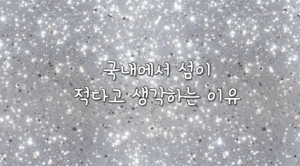아일랜드커미트리
아일랜드 커미트트리는 산호초와 기타 살아가는데 필요한 정보들을 정리 및 나열을 한 곳이라고 보시면 됩니다 여러분들이 일상 생활에서 시간이 날 때 또는 쉬는 시간에 볼 수 있는 그런 내용을 담고 있습니다
산호초란 무엇인가요?
산호초는 바닷가 밑에 사는 식물이라고 보시면 됩니다 식물들이 하나의 군집을 이루면서 살아가는게 특징이죠 우리나라에 남해를 가보신 분들은 아시겠지만 이런 산호초들이 엄청 이쁘게 분포가 되어 있습니다 얉은 바다가 아니라 깊은 바다라서 잘 볼 수 없을 뿐입니다
산호초를 보호하기 위한 대책은 없나요?
우선 저희도 이런 문제에 대해서 엄청 신경을 쓰고 있습니다 최근에는 국립수산과학원에 연락을 드려서 어떻게 하면 산호초가 없어지는 것을 방지를 할 수 있나 회의도 했을만큼이죠 그래서 추가적으로 회의를 해보고 결과가 나온다면 여기에 공유를 하도록 하겠습니다
일상 생활 정보
우리 일상에서도 정말 많은 일들이 있습니다 그런 개인적인 내용들도 같이 공유를 하면 좋을 것이라고 저는 생각을 하는데요 산호초 같은 내용들만 보면 솔직히 재미가 없어지는 것도 있습니다 그래서 이렇게 제 개인적인 이야기도 섞는것임을 알려드립니다
주변 아일랜드
아일랜드는 뭐 종류가 많이 없는 줄 아시는데 생각보다 많이 있습니다 국내에서만 거의 1200개 넘는 섬들이 있는데요 아일랜드만 알고 계셔도 관광지의 전부는 알 수 있다고 할 수 있을 정도로 정말 많은 관광자원을 가지고 있습니다
아일랜드를 알리는 이유
별 뜻은 없습니다 하지만 국내에서 아일랜드에 관한 내용들이 현저히 적은 것은 사실입니다 이를 알리고자 이렇게 여러분들과 공유를 하는 자리를 마련을 하였습니다 관심을 가지면서 더욱 저에게 문의를 주시면 정리를 해서 여기다가 나열을 해놓도록 하겠습니다!
이외의 어떤 내용을 제공하시나요?
제가 생각하기에 굉장히 주관적인 내용들을 다뤄볼까 합니다 여태까지는 다른 사람들의 자료를 검토를 하고 하도 객관적인 분야에서 제가 일을 해서 그런지 여기에는 제 개인적인 생각을 담긴 또는 제 일상 생활과 팁들을 정리를 해보려고 합니다 혹시나 문제가 있다면 바로바로 알려주세요
주변 섬들에 대해서 알려주세요
저는 친구랑 둘이서 즉흥적으로 떠나게 되었어요. 저희는 서울에서 출발했는데 차를 가지고 가는 게 편할 것 같아서 각자 차를 끌고 갔어요. 중간에 휴게소 한 번 들르고 약 4시간 반만에 도착했답니다. 주차장에 차를 세워두고 내리자마자 보이는 건 드넓은 바다였어요. 날씨가 좋아서 그런지 바다가 더욱 파랗게 보이더라구요. 사진으로만 봐도 속이 뻥 뚫리는 거 같지 않나요?ᄒᄒ
이미 눈치를 채신 분들도 계시겠지만 저희는 제주도에 주로 있습니다 간혹가다가 일들이 많아지게 되면은 서울쪽으로 가게 되는데요 거의 1년을 기준으로 8개월 이상은 제주도에 있으니깐 언제든지 방문을 해주시면 됩니다
전에 온라인으로 연락을 주고 받기도 하였습니다 많은 분들이 연락을 주셨는데 이게 하나 하나 답장을 드리기가 너무 벅차더라구요 저희가 어떻게 보면 단순히 궁금한 사항에 대해서 답을 해드리는 것 자체가 부담일 때가 많이 있어서 그렇습니다 이 점은 양해를 부탁드립니다
참고를 하시는 것은 따로 없습니다 단순히 여러분들이 보시고 나서 어떤 부분이 즐거웠고 유익했다 이런 부분만 남겨주시면 저는 뭐 큰 힘이 되죠 제가 이렇게 운영을 한다고 해서 얻는 부분도 없습니다 그냥 과자를 드시는 것 처럼 마음껏 그리고 시간제한이 없이 보시기를 바랍니다
단순히 이미지라고 저는 생각이 되고 있습니다 아일랜드가 주는 따뜻함 그리고 그 포근함과 휴양지 같은 그런 이미지가 많이 생각이 나게 되는 것이죠 즉 내 자신을 휴식을 할 수 있는 공간이라고 저는 개인적으로 생각을 하고 있습니다
제주 아일랜드 가신다면 아우터를 챙겨가세요
올해도 어김없이 제주 아일랜드를 방문을 하시는 분들이 많아질 것이라고 저는 생각을 합니다 국내에서는 이 만큼 인기가 있는 섬이 없으니깐요 그런데 방문을 하실때는 아우터를 꼭 1개 이상은 챙겨 가시는게 좋은데요 만약 없으시다면 sacoilholdings.com 여기 크림에 관련된 정보를 보시고 차근 차근 순서대로 해보시길 바랍니다
섬에 간다면 꼭 먹을 것은 챙겨가세요
섬을 놀러 갈 때 항상 먹을 것을 챙겨가는 것을 잊지 말아야 하는데요 섬에는 생각보다 주변 편의 시설들이 일찍 문을 닫는 경우가 많이 있습니다 그리고 어떤 분들은 가격을 일부로 높혀서 제공을 하시는 분들도 계시기도 하죠 만약 먹거리는 어디서 미리 구비를 해야 될지 모르겠다면 미트리 추천인 코드 디시를 통해서 확인이 가능합니다 저 말고도 많은 분들이 여기 미트리에서 국밥, 볶음밥 종류들을 사고 있으니 한번 확인해보세요


